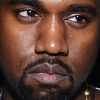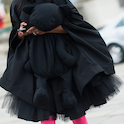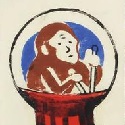What are you reading today/book club
What are you reading today/book club
Just finished middlesex and a hologram for a king. Really enjoyed both of them. Now starting the game of thrones series and enjoying that so far.
For a non-fiction book I'm in the midst of Resistance: a radical social and political history of the lower east side. It's very interesting so far.
For a non-fiction book I'm in the midst of Resistance: a radical social and political history of the lower east side. It's very interesting so far.
- 1
-

lanky - Posts: 54
- Joined: Thu Aug 01, 2013 3:22 am
- Reputation: 17
Re: What are you reading today/book club
Just finished Lolita. Superb style but took me forever to read. Also just finished Breakfast at Tiffanys. Very breezy but beautiful to read.
i got a bunch of books suggested by trashpile. i think after i bone up one some more "classic modern literature" im going to read something really sci-fi, maybe "pattern recognition" by Gibson because it's got an interesting take on marketing and advertising, my field.
i got a bunch of books suggested by trashpile. i think after i bone up one some more "classic modern literature" im going to read something really sci-fi, maybe "pattern recognition" by Gibson because it's got an interesting take on marketing and advertising, my field.
- 3
-

teck - Posts: 537
- Joined: Thu Aug 01, 2013 10:17 am
- Reputation: 1812
Re: What are you reading today/book club
Just finished Robert Holland - Blue-Water Empire: the British in the Mediterranean since 1800 chronicling the diplomatic and militaristic wranglings of Britain in forming the closed off "British lake" of the Mediterranean (locked down by Gibraltar in the West and, later, the Suez in the East). It traces the colonial history of the various holdings in the region - Gibraltar, Malta, Cyprus, Corfu, the Ionian Islands, Crete, Egypt and Palestine as well as the repeated attempts to put British-friendly monarchs in power in Greece. It also discusses in great detail how British geopolitical strategy alternated between a Mediterranean-centric view of or one that focused elsewhere and the effects of this on the world wars.

I'm now ploughing my way through Þórbergur Þórðarson - Steinarnir tala, tranlated into English as The Stones Speak. Þórbergur describes his childhood growing up on a rural farm in Hali, Iceland at the end of the 19th century. We visited the farm and the museum dedicated to him there, and it's really interesting to read about that area we stayed in such vivid detail. I wish more of his books were translated into English - he's a fascinating character who grew up in a simple farming community, was destitute in Reykjavík, found fame as a writer, married a woman and had a long-standing affair with the woman he loved, traveled the world, denounced organised religion, pushed for world-wide adoption of Esperanto, became a communist, studied the occult and renounced communism before dying of a stroke back in Reykjavík


I'm now ploughing my way through Þórbergur Þórðarson - Steinarnir tala, tranlated into English as The Stones Speak. Þórbergur describes his childhood growing up on a rural farm in Hali, Iceland at the end of the 19th century. We visited the farm and the museum dedicated to him there, and it's really interesting to read about that area we stayed in such vivid detail. I wish more of his books were translated into English - he's a fascinating character who grew up in a simple farming community, was destitute in Reykjavík, found fame as a writer, married a woman and had a long-standing affair with the woman he loved, traveled the world, denounced organised religion, pushed for world-wide adoption of Esperanto, became a communist, studied the occult and renounced communism before dying of a stroke back in Reykjavík

- 0
-

Syeknom - Posts: 2109
- Joined: Thu Jul 11, 2013 4:48 pm
- Location: Amsterdam
- Reputation: 7986
Re: What are you reading today/book club
Teck - Been wanting to read Lolita for a while. I'm also needing to brush up on my classics but I get so caught up in modern literature that I never find time for them.
Syek - The Stone Speaks seems really interesting. I definitely want to learn more about him now.
Syek - The Stone Speaks seems really interesting. I definitely want to learn more about him now.
- 0
-

lanky - Posts: 54
- Joined: Thu Aug 01, 2013 3:22 am
- Reputation: 17
Re: What are you reading today/book club
just finished Kafka on the Shore. Really enjoyed it.
A friend gave me this novella by a Korean author that I am going to read next, then probably Cloud Atlas.
A friend gave me this novella by a Korean author that I am going to read next, then probably Cloud Atlas.
- 1
"Authorities say the phony Pope can be recognized by his high-top sneakers and incredibly foul mouth."
-

starfox64 - Posts: 1147
- Joined: Wed Jul 24, 2013 4:41 am
- Location: your mom
- Reputation: 2134
Re: What are you reading today/book club
been making my way through bukowski's novels. reading 'factotum' at my shitty stockroom job was masochism.
after bukowski, reading hunger by knut hamsun. glad to be reading again, haven't been actively reading in too long. got bored of browsing mfa/sufu/sf/etc, needed to pass time at work, and here i am. kindle for android is the fucking bomb.
after bukowski, reading hunger by knut hamsun. glad to be reading again, haven't been actively reading in too long. got bored of browsing mfa/sufu/sf/etc, needed to pass time at work, and here i am. kindle for android is the fucking bomb.
- 0
-

hmwut - Posts: 217
- Joined: Tue Aug 06, 2013 2:24 pm
- Location: New Jersey
- Reputation: 1900
Re: What are you reading today/book club
recently enjoyed ender's game (HOW HAVE I NOT READ THIS EARLIER) and making headway on speaker. although i've heard that i should read ender's shadow first.
- 0
-

adhi - Posts: 117
- Joined: Tue Jul 23, 2013 1:50 pm
- Location: ann arbor
- Reputation: 172
Re: What are you reading today/book club
went on vacation and brought some books. read the new chuck palahniuk book (damned), was ok. I don't think i like him very much. I also brought 'even cowboys get the blues' by tom robbins, glamorama by bret easton ellis, and something by don delillo. Not much of a fan of either of them. tom robbins is too 'witty' for me and glamorama dragged so hard. american psycho without the violent murders. havent started the don delillo yet.
i read cats table by michael ondaajte recently, i found that quite good. he has a way with words.
i also battled infinte jest for 500 pages and was forced to give it up when someone requested it. definitely my favorite of the summer.
@teck, you should read pattern recognition, it's great.
i read cats table by michael ondaajte recently, i found that quite good. he has a way with words.
i also battled infinte jest for 500 pages and was forced to give it up when someone requested it. definitely my favorite of the summer.
@teck, you should read pattern recognition, it's great.
- 1
草地跑過的腳印
-

smiles - Posts: 992
- Joined: Wed Jul 31, 2013 10:25 pm
- Location: BK
- Reputation: 6585
Re: What are you reading today/book club
i've been meaning to get around to infinite jest and basically everything wallace wrote really. sad story though.
- 1
-

adhi - Posts: 117
- Joined: Tue Jul 23, 2013 1:50 pm
- Location: ann arbor
- Reputation: 172
Re: What are you reading today/book club
Just started reading House of Leaves today. Really interesting so far.
- 0
-

lanky - Posts: 54
- Joined: Thu Aug 01, 2013 3:22 am
- Reputation: 17
Re: What are you reading today/book club
I never made it thru heart of darkness. I do love his novel 'the double'
I haven't read a novel in ages honestly
I haven't read a novel in ages honestly
- 1
-

can- - Posts: 3015
- Joined: Wed Jul 10, 2013 10:34 pm
- Reputation: 11408
Re: What are you reading today/book club
Conrad is one of my absolute favourites. I have an annotated edition of heart of darkness that I've been meaning to read but haven't.
Nostromo is my favourite of his that I've read though. I just love it.
Nostromo is my favourite of his that I've read though. I just love it.
- 0

-

bels - Yung Winona
- Posts: 5087
- Joined: Thu Jul 11, 2013 2:43 pm
- Reputation: 18872
Re: What are you reading today/book club
I've never read him before, will have to check it out. Free version on the kindle too, get in!
- 0
-

Syeknom - Posts: 2109
- Joined: Thu Jul 11, 2013 4:48 pm
- Location: Amsterdam
- Reputation: 7986
Re: What are you reading today/book club
Reading transatlantic by Colum Mcann. Very very well written- long listed for booker award too.
- 0
-

RycePooding - Posts: 846
- Joined: Thu Jul 11, 2013 1:56 pm
- Reputation: 2839
Re: What are you reading today/book club
Man i was like 70% of the way through and then the cricket started
- 1
-

germinal - Garminlad
- Posts: 1282
- Joined: Thu Jul 11, 2013 12:18 pm
- Reputation: 5243
Re: What are you reading today/book club
As if test cricket isn't the perfect opportunity to get some reading done
- 1

-

bels - Yung Winona
- Posts: 5087
- Joined: Thu Jul 11, 2013 2:43 pm
- Reputation: 18872
Re: What are you reading today/book club
I can't concentrate on post-modernism and TMS at the same time
- 1
-

germinal - Garminlad
- Posts: 1282
- Joined: Thu Jul 11, 2013 12:18 pm
- Reputation: 5243
Re: What are you reading today/book club
I tried reading that on the subway when I lived in New York. Got like 120 pages in, realized I had no idea what was happening, started over, same thing happened. In hindsight I don't even know why I even bothered.
Also at one point my girlfriend bought me a copy of the book, even though she knew I already had one. I was like, "what am I supposed to do with two copies of the same 700 page book?"
Women, amirite?
Also at one point my girlfriend bought me a copy of the book, even though she knew I already had one. I was like, "what am I supposed to do with two copies of the same 700 page book?"
Women, amirite?
- 0
"Authorities say the phony Pope can be recognized by his high-top sneakers and incredibly foul mouth."
-

starfox64 - Posts: 1147
- Joined: Wed Jul 24, 2013 4:41 am
- Location: your mom
- Reputation: 2134
Re: What are you reading today/book club
My girlfriend bought me a copy of Leviathan.
Anyway, just finished that murakami book about the gas attacks. Anyone got any reccs for a book that is fiction and either over 200 years old or translated or ideally over 200 years old and translated?
Anyway, just finished that murakami book about the gas attacks. Anyone got any reccs for a book that is fiction and either over 200 years old or translated or ideally over 200 years old and translated?
- 0

-

bels - Yung Winona
- Posts: 5087
- Joined: Thu Jul 11, 2013 2:43 pm
- Reputation: 18872
Re: What are you reading today/book club
Not over 200 years old but you could read through Les Rougon-Macquart
Maybe . I've not read it so can't give a recommendation, but trawling through wikipedia for famous historical literature is rather fun.
Maybe . I've not read it so can't give a recommendation, but trawling through wikipedia for famous historical literature is rather fun.
- 0
-

Syeknom - Posts: 2109
- Joined: Thu Jul 11, 2013 4:48 pm
- Location: Amsterdam
- Reputation: 7986
Re: What are you reading today/book club
u gotta rec me a translation too.
I could make a second start on the first three volumes of The History of the Decline and Fall of the Roman Empire. Bought the first three thinking there was only three volumes then found out there was another three and gave up.
I could make a second start on the first three volumes of The History of the Decline and Fall of the Roman Empire. Bought the first three thinking there was only three volumes then found out there was another three and gave up.
- 0

-

bels - Yung Winona
- Posts: 5087
- Joined: Thu Jul 11, 2013 2:43 pm
- Reputation: 18872
Re: What are you reading today/book club
bela: philosophy in the bedroom. any translation will do.
also to all the people reading/not finishing gravity's rainbow: just take everything on faith, whether it makes sense or not (it mostly does. mostly).
also to all the people reading/not finishing gravity's rainbow: just take everything on faith, whether it makes sense or not (it mostly does. mostly).
- 0

-

odradek - Posts: 993
- Joined: Fri Aug 02, 2013 4:53 pm
- Reputation: 6056
Re: What are you reading today/book club
last book i finished was haruki murakami's what i talk about when i talk about running. exited the last page with a deep and peaceful appreciation for contemplative physical activity and writing steadily over the years.
currently reading universal principles of design, which i highly highly recommend for anyone interested in cognitive science/psychology/design/aesthetics/human perception. it's a bunch of different principles and heuristics and effects to do with communicating visuals/ideas/information. hard to describe but it's very, very good.
currently reading universal principles of design, which i highly highly recommend for anyone interested in cognitive science/psychology/design/aesthetics/human perception. it's a bunch of different principles and heuristics and effects to do with communicating visuals/ideas/information. hard to describe but it's very, very good.
- 2
-

schiaparelli - Posts: 448
- Joined: Sun Jul 28, 2013 7:00 pm
- Reputation: 2974
Re: What are you reading today/book club
In the end I realised I have The Best Of Archy And Mehitabel on my nook so I'm reading that.
- 0

-

bels - Yung Winona
- Posts: 5087
- Joined: Thu Jul 11, 2013 2:43 pm
- Reputation: 18872
Re: What are you reading today/book club
went to like three coffee shops yesterday to finish cloud atlas so as to have a new book to read on my four hour flight today, plus all the waiting at the airport or whatever.
read 12 pages.
read 12 pages.
- 0
"Authorities say the phony Pope can be recognized by his high-top sneakers and incredibly foul mouth."
-

starfox64 - Posts: 1147
- Joined: Wed Jul 24, 2013 4:41 am
- Location: your mom
- Reputation: 2134
Re: What are you reading today/book club
That book should have been so great but fuck some of the story arcs were taxing to read. Feel like I didn't get as much out of it as I should have.
- 0
-

ramseames - Posts: 2235
- Joined: Thu Sep 12, 2013 6:14 pm
- Location: vancouver
- Reputation: 6690
Re: What are you reading today/book club
starfox, personally, of the Murakami novels I've read, I though Kafka on the Shore was his weakest. Except maybe behind 1Q87 which I only read up to book 3 and then couldn't be bothered to keep reading.
bela please explain to me the appeal of Heart of Darkness
Reading War and Peace for class.
I just got Making Wet: The Magazine of Gourment Bathing in the mail.
bela please explain to me the appeal of Heart of Darkness
Reading War and Peace for class.
I just got Making Wet: The Magazine of Gourment Bathing in the mail.
- 0
my mother is a kenzo fish sweater
-

charybdis - Posts: 515
- Joined: Sat Sep 14, 2013 3:51 pm
- Reputation: 2652
Re: What are you reading today/book club
what class are you reading W+P for?
is the class "War and Peace"?
seriously having a hard time imagining that shit in a survey class
is the class "War and Peace"?
seriously having a hard time imagining that shit in a survey class
- 0
-

can- - Posts: 3015
- Joined: Wed Jul 10, 2013 10:34 pm
- Reputation: 11408
Who is online
Users browsing this forum: No registered users and 15 guests

